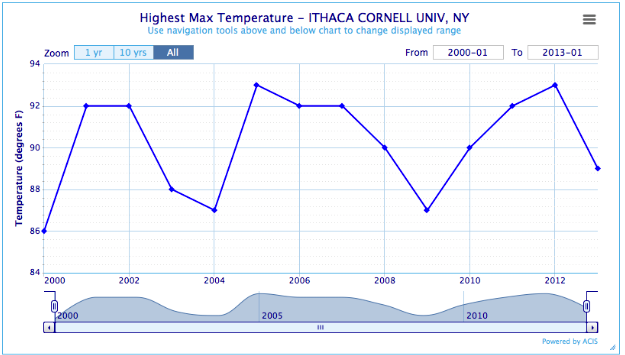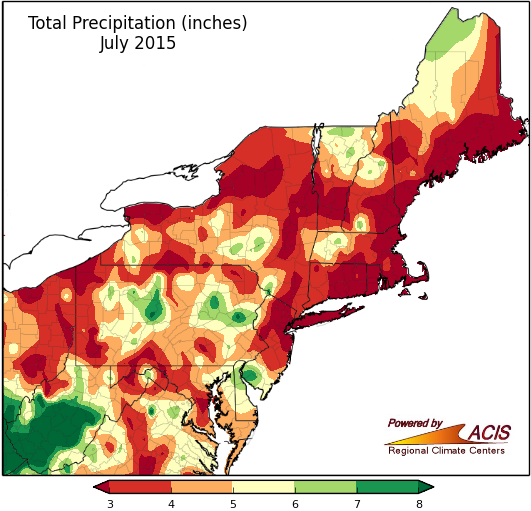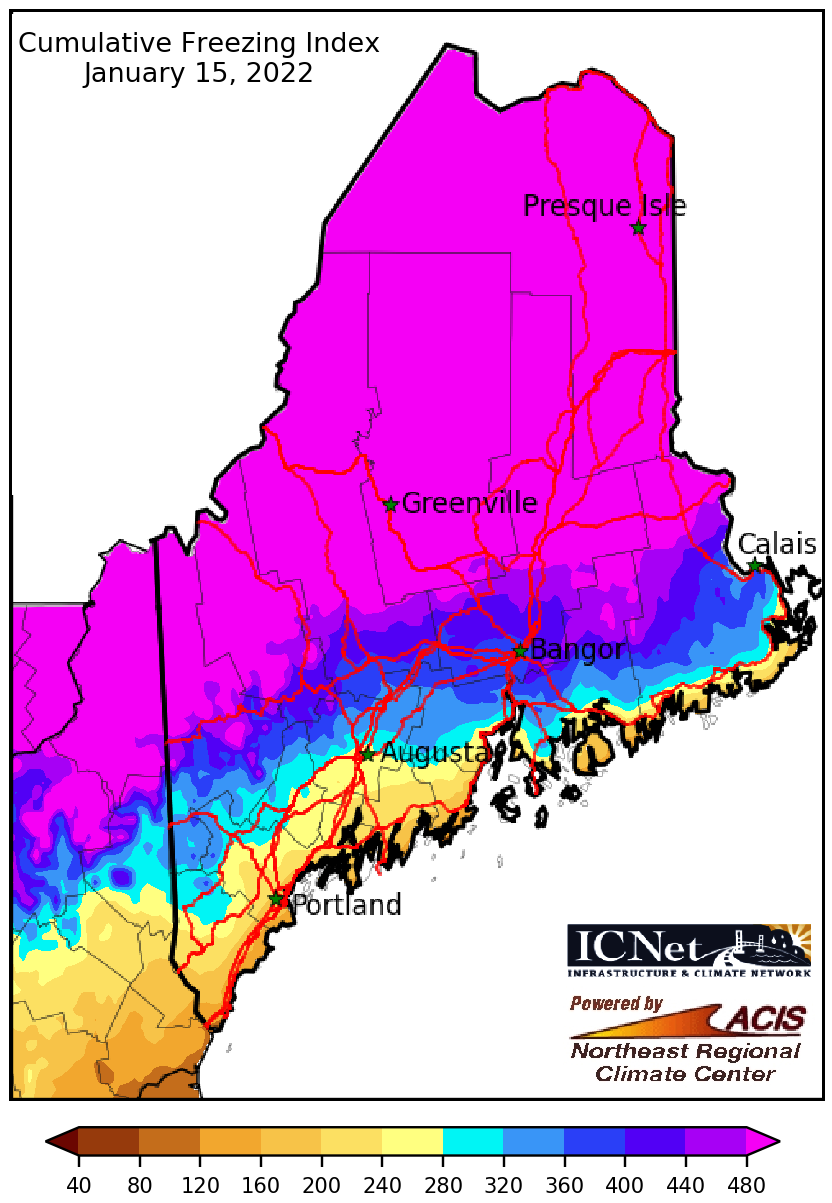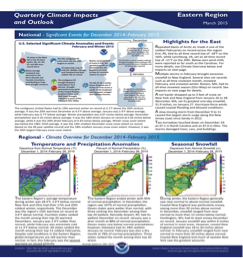

Mid-January Status Update
The first half of January was warmer than normal across the Northeast, ranking among the 20 warmest such periods for several major climate sites. Much of the region was also drier than normal, with below-normal snowfall. In fact, the period ranked among the 20 driest on record for eight major sites and among the 20 least snowy for two of the sites. However, a few locations, particularly in parts of New York, were wetter and/or snowier.
Read more in the NRCC BlogNortheast News

Drought Persists for Most
The U.S. Drought Monitor released on Thursday, January 22 showed minor improvements in drought and/or abnormally dry conditions in several spots but slight deterioration in other spots. For much of the Northeast, conditions were unchanged.
- Severe drought contracted in northern Maine.
- Moderate drought was trimmed in parts of New York and Pennsylvania but expanded in parts of Massachusetts and Rhode Island.
- Seven-day streamflow was record low a few spots like central and southern Maryland, southeastern Pennsylvania, and northern New Jersey.
- Reservoir and/or lake levels in places like New Jersey and south-central Pennsylvania remained below normal.
- Groundwater levels continued to be record low in multiple locations across the Northeast.
- The short-term outlooks for January 27 to February 4 favor cold, dry conditions for the Northeast.
Website Highlights
Weather Station Data
Weather Station Data includes location-specific information, such as wind data, evapotranspiration, and daily almanacs.

CLIMOD 2 is a user-friendly website to find single-station and multi-station climate products for locations accross the country. For example, the Seasonal Ranking report produces a graph and table of extremes or other summaries for a specified period for each year.
Go to CLIMOD 2State & Regional Analyses
These provide several map types, regional climate summaries, snow survey data, and drought information.

The Monthly Maps offer a variety of monthly precipitation and temperature departure maps for any given month for the Northeast region or a selected state.
Go to Monthly Map pageAnalyses for Industry
Analyses for Industry shows products the NRCC has created through partnerships with various industries.

The Roadway Freezing/Thawing page has cumulative freezing and thawing index maps for Maine, New Hampshire, and the Northeast region. The Minnesoata Department of Transportation has recommended guidelines for applying and removing winter weight premiums and spring load restrictions based upon these indices.
Go to Road Freeze/Thaw PageWebinars & Workshops
Webinars & Workshops provides recordings and presentations from the monthly webinar series, as well as information on past and upcoming workshops.

The Northeast Regional Climate Center hosts a monthly webinar series with NOAA affiliates to address timely weather topics.
Go to Monthly WebinarsPublications & Services
Publications & Services includes the NRCC blog, quarterly outlooks, as well as other reports and publications.

The Quarterly Outlooks are seasonal climate highlights and outlook for the upcoming season for the Eastern, Region, Great Lakes, and Gulf of Maine. Published in March, June, September and December.
Go to Quarterly Reports